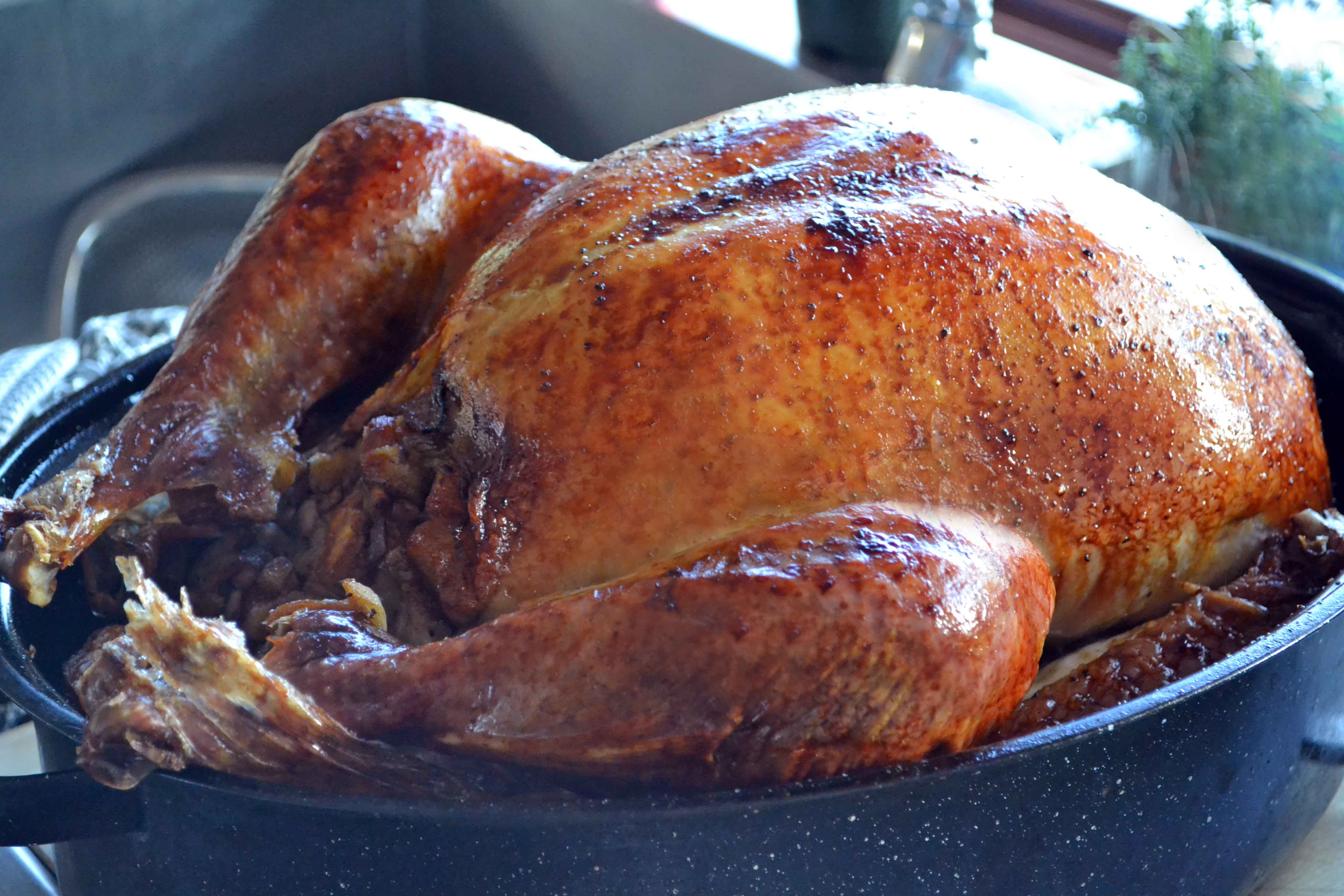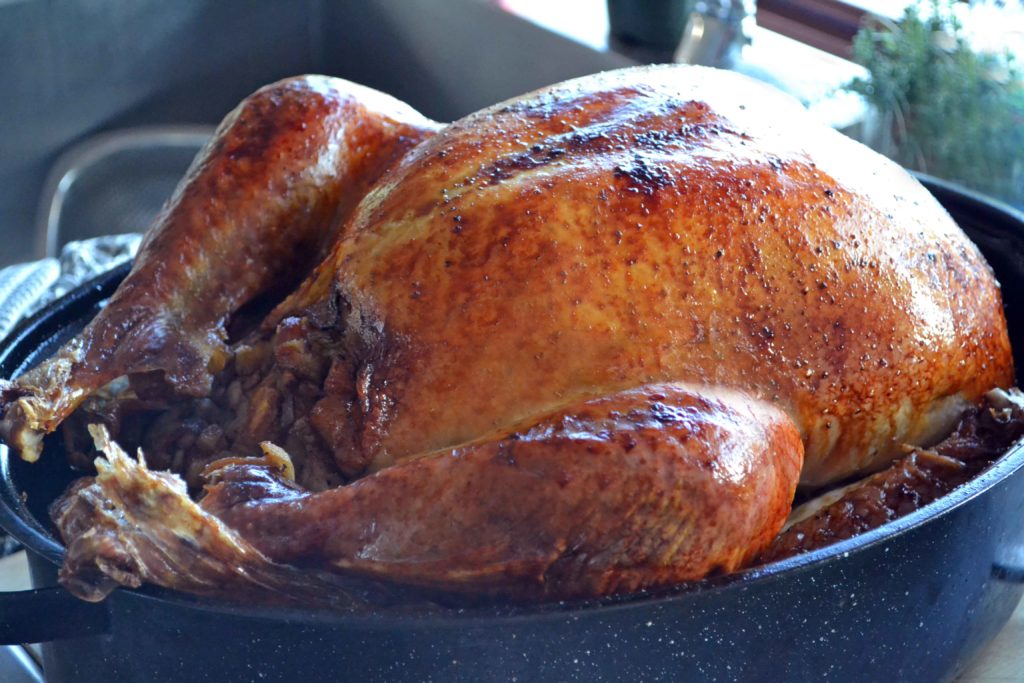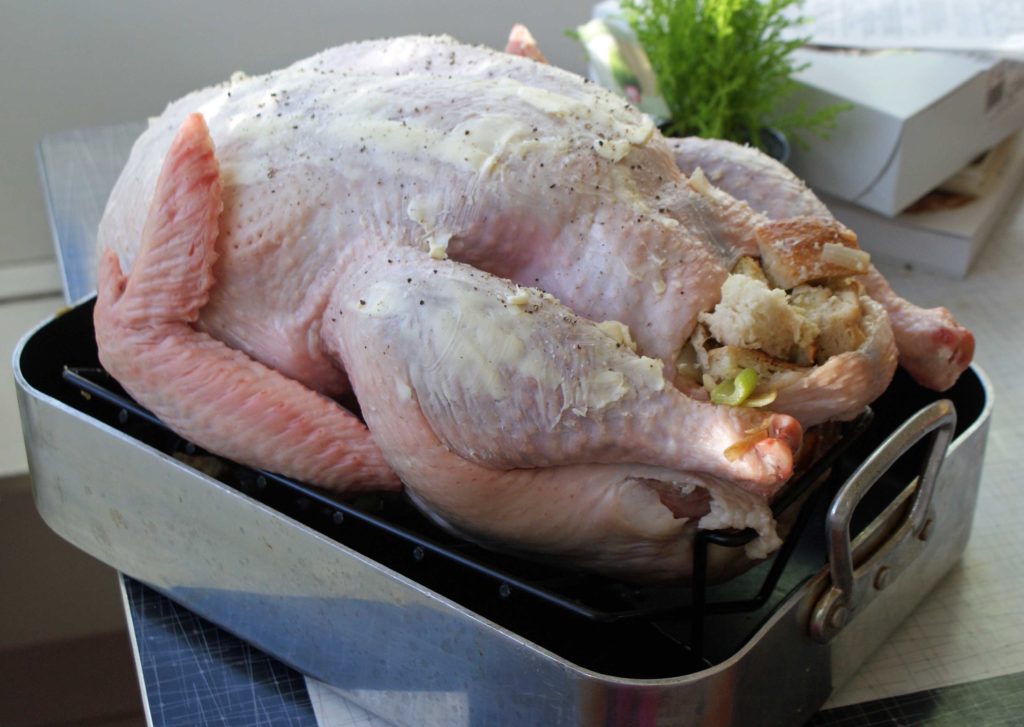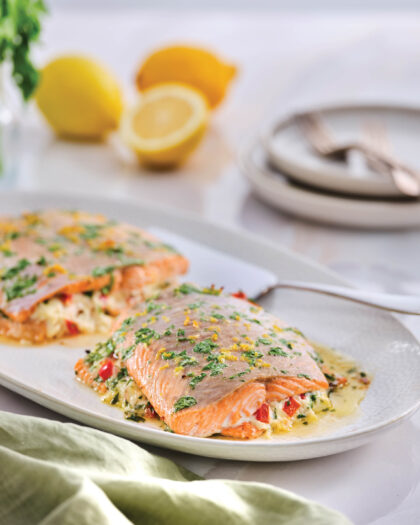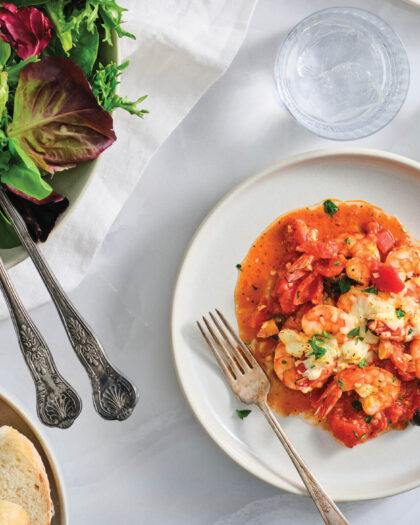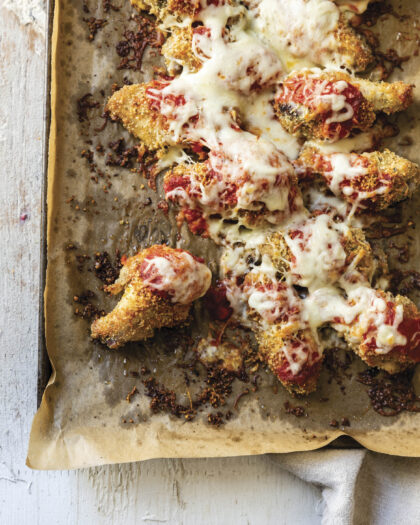Easter is coming up quickly, and many families roast a turkey instead of a ham – it’s perfect for feeding a crowd, and provides an excuse to make (and eat) stuffing! If you have a turkey on your menu this weekend, here’s a refresher. We took some guidance from local experts Darrel Winter and Corinne Dahm, who have been raising free range turkeys in the small hamlet of Dalemead, 20 minutes south of Calgary, since 1977, in the same house Darrel grew up in.
Thawing: To quickly thaw a frozen turkey, place it (still wrapped) in a deep sink or a large container, such as a cooler or Tupperware bin, and cover completely with cold water. Allow 1 hour per pound of turkey (2 hours per kg) to thaw. Alternatively, sit it in a large roasting pan (to catch any drips) in the refrigerator and allow 5 hours per pound (10 hours per kg) – keep in mind that large birds can take days to thaw.
Stuffing: Spoon stuffing loosely into the cavity of the bird just before roasting; never pack it tight or stuff your turkey the day before. When you’re ready to eat, remove the stuffing before carving and if you like, pop it in the microwave for a few minutes to ensure it’s thoroughly heated through. Alternatively, bake your dressing in a casserole dish alongside your turkey, and stuff a handful of fresh herbs, a halved head of garlic and/or lemon into the cavity instead. Unstuffed turkeys will cook more quickly.
Seasoning: Place the bird breast side up on a rack in roasting pan, pat dry with a paper towel and rub the skin with soft butter or canola oil. Season the skin and inside the cavity with salt, pepper, poultry seasoning, cayenne, thyme, rosemary or your favourite herbs and spices. If you’re using one, insert an oven-safe thermometer into the thickest part of the thigh, being careful to not touch the bone.
Roasting: Cover loosely with foil or a lid and roast in a preheated 325° oven. The general rule of thumb for oven cooking a stuffed turkey at 325° F is 15 minutes per pound (30 minutes per kg). If you choose to baste your turkey, limit the number of times you open and close your oven – once an hour is sufficient. Begin checking for doneness about one hour before the end of the recommended roasting time, and keep in mind that fresh turkeys cook faster. Uncover about an hour before the end of the cooking time for crispy, golden skin. Your turkey is done when a meat thermometer inserted into meaty part of the inner thigh reads 180° F for a stuffed turkey or 170° F for an unstuffed turkey. Temperature is the best indication of doneness, as the juices may still have a slight pink tinge.
Resting: Cover your turkey loosely with foil and let it stand for at least 15 minutes while you make the gravy – this will help retain its juices, keeping the meat tender and easier to carve.

